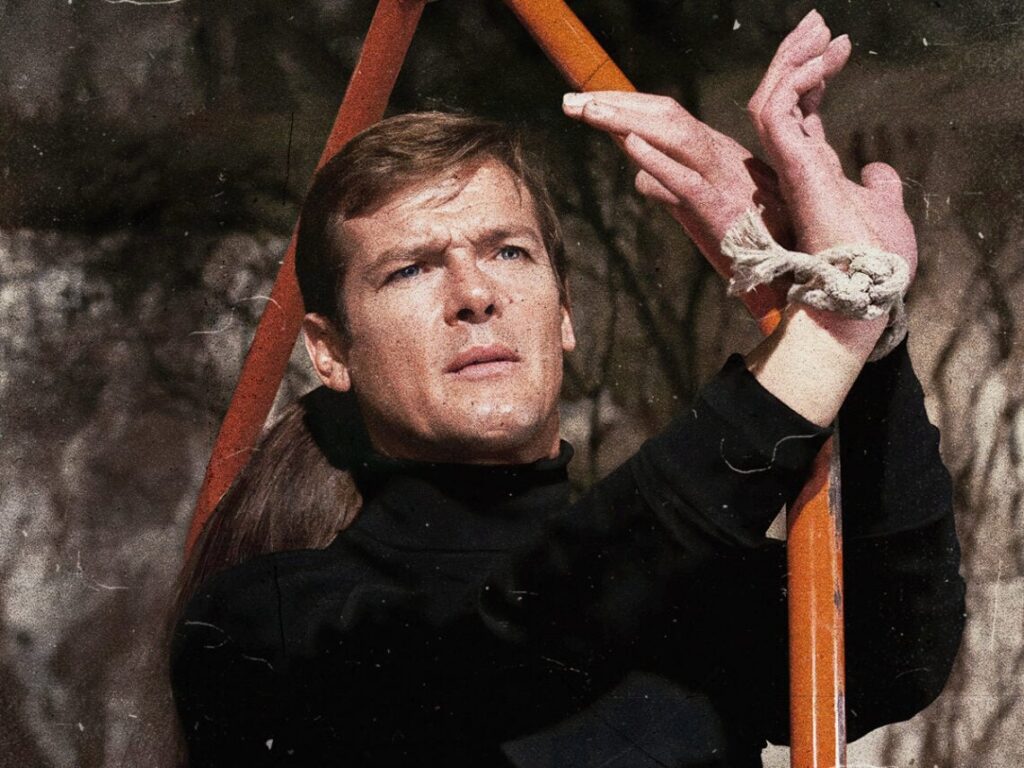The reason Roger Moore played James Bond “tongue-in-cheek”
 Posted On
Posted On
(Credits: Far Out / United Artists)
The cinematic mythology of James Bond is quite an extensive one, with the role being considered one of the most valuable among actors in the world of franchise cinema. Due to its legacy, which spans multiple decades, fans are often engaged in intense discourses about potential successors and where the film series is headed in the future.
That has definitely been the case since Daniel Craig stepped down as the titular spy following No Time to Die, leaving the space wide open for a new Bond to emerge and excite global audiences. While it hasn’t exactly been an easy position to fill so far, many actors have joined the conversation as the producers make their final decision about the direction in which they want to take the franchise.
Even though the future is uncertain, fans can always take a look back at James Bond’s illustrious history and the cinematic giants like Sean Connery, who made definite contributions to the character’s immortalisation in popular culture. Among them is Roger Moore, who presented his unique interpretation of Ian Fleming’s creation throughout his seven appearances as Bond.
Initially considered for On Her Majesty’s Secret Service by the producers, Moore began his tenure as Bond with Live and Let Die. From that very first outing, the actor made it clear that his Bond was very different from Connery’s character, supported by the screenwriters who tailored Moore’s spy to be more light-hearted and superficial, armed by raised eyebrows.
During a conversation with EW, Moore explained: “I tried to find out what Bond was all about, but you can’t tell much from the books. There’s the line that says, ‘He didn’t take pleasure in killing, but took pride in doing it well.’ So that’s what I did. But the other side of me was saying, This is a famous spy — everyone knows his name, and every bartender in the world knows he likes martinis shaken, not stirred. Come on, it’s all a big joke! So most of the time, I played it tongue-in-cheek.”
With other classics, such as The Man with the Golden Gun and Moonraker, under his belt, Moore’s vision might seem alien to younger generations of James Bond fans who are used to the neo-noir elements in Craig’s performances. Interestingly, Moore was also a fan of what Daniel Craig did with the character, and he expressed his admiration in the same interview.
Moore added: “Okay, I’ve seen Daniel’s Casino Royale, and I thought it was bloody good! I saw bits of the Timothy Dalton ones, and I saw one of Pierce’s, and I thought that was a bit phantasmagoric — invisible cars! They went too far… In 47 years, they haven’t made many mistakes with the Bond franchise. They’re clever enough to sense a trend. And the trend right now is for hard, gritty Bond.”
It remains to be seen whether the producers will stick to the gritty formula they used for Daniel Craig for the next Bond, with some fans being apprehensive about the incorporation of postmodern meta-humour that most modern spy movies seem to weaponise. Either way, it’s going to be a tough job to outdo predecessors as glorious as these.
[embedded content]


